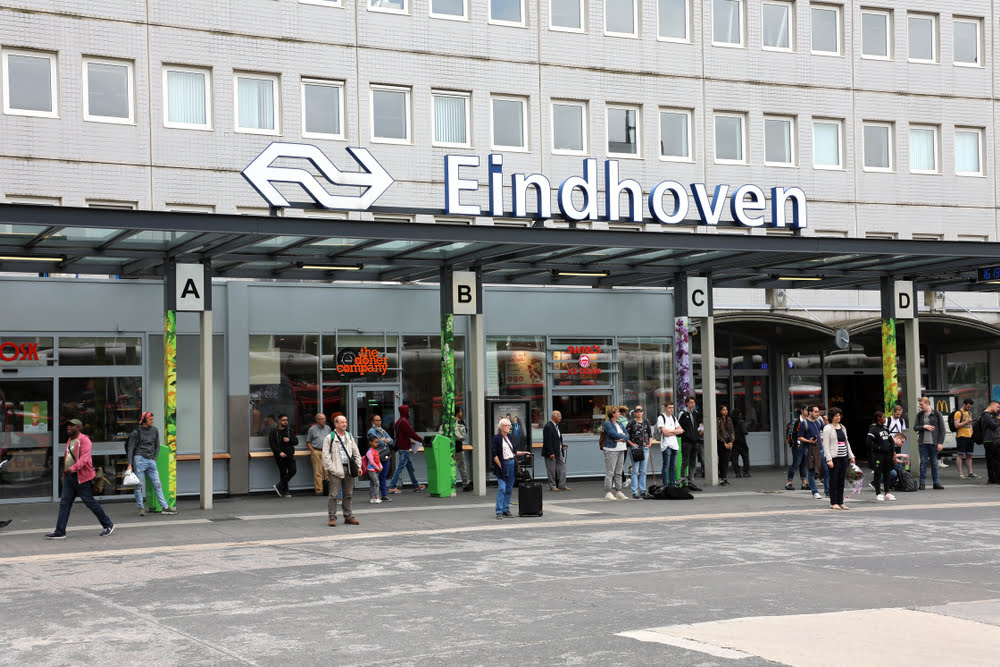People are willing to break rules and decency in their pursuit of money.
In Eindhoven there is a commotion surrounding a modern phenomenon known as 'free money', where amounts of money are hidden in random public locations and promoted via social media. This activity, while seemingly an innocent and fun game, raises serious questions about its impact on the community and possible unintended consequences.
The concept is simple: an anonymous person hides money somewhere in the city and then shares a video on Instagram with clues to the location. This initiative has quickly caused a stampede, with people roaming the streets looking for the hidden money. What started as a playful action quickly took a less innocent turn, resulting in inconvenience and frustration for the residents of Eindhoven.
The initiator, a 28-year-old resident of Eindhoven anonymously wants to stay, justifies his actions with the argument that it creates a win-win-win situation: companies get advertising, he earns some money, and his followers get the chance for a financial bonus without much effort. While this seems attractive on paper, the negative impacts on the community and public life are overlooked.
decency
One of the most worrying aspects is the nuisance and disruption caused by these money grabs. Residents are confronted with unexpected crowds in their streets, with all the inconvenience that entails. The phenomenon attracts not only enthusiastic treasure hunters, but also people who are willing to break rules and decency in their pursuit of the money. This can lead to unsafe situations, both for the participants and for unsuspecting passers-by.
Involving entrepreneurs in the 'free money' phenomenon, where financial rewards are randomly hidden in public spaces and promoted via social media, raises important ethical and social questions. This practice, although possibly intended as an innovative marketing strategy, deserves critical evaluation from the perspective of corporate sustainability and social responsibility.
For entrepreneurs who are tempted to participate, the condemnation can be twofold. First, their company's public image may be damaged if the community sees the action as opportunistic or irresponsible. This can lead to a loss of trust and loyalty among customers who value ethical practices and social responsibility. Secondly, there may be legal implications if such activities lead to unforeseen consequences, such as public nuisance or safety risks, for which companies can be held partly responsible.

Furthermore, the practice raises ethical questions about the role of social media and the responsibility of those who promote such activities. Using social media to encourage people to engage in this type of behavior can be seen as a form of exploitation of the human tendency towards greed and the desire for easy money. The fact that companies are involved in financing these searches, under the guise of advertising, raises questions about the commercialization of public spaces and social interactions.
The initiator claims to be down-to-earth and to expect the trend to blow over quickly. However, the question remains whether the short-term benefits outweigh the long-term impact on the community and the precedents it sets for future social media challenges. It is crucial that a balance is found between innovative ideas and the well-being of the community.
critical reflection
This situation in Eindhoven highlights the need for critical reflection on the way social media is used to influence behavior in the physical world. It is time for a dialogue about the responsibilities of individuals and companies active on social platforms, as well as the role of community and government in addressing the challenges arising from these new forms of interaction.
It is essential that entrepreneurs set an example by acting ethically and responsibly, not only in their direct business operations, but also in their marketing strategies and community involvement. Instead of pursuing short-term gains through controversial actions, companies should invest in sustainable marketing practices that add real value to the community and contribute to a positive corporate image in the long term.




